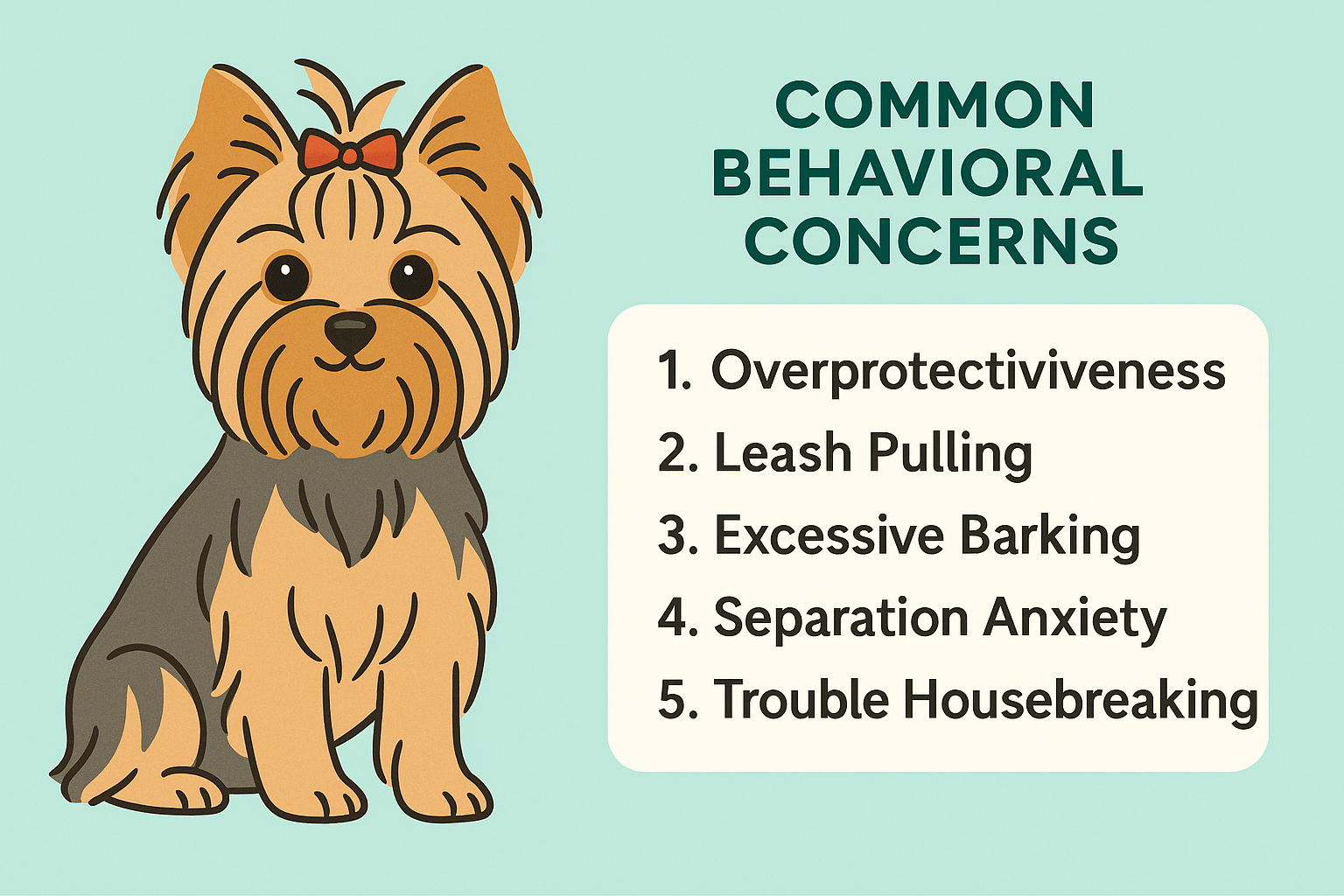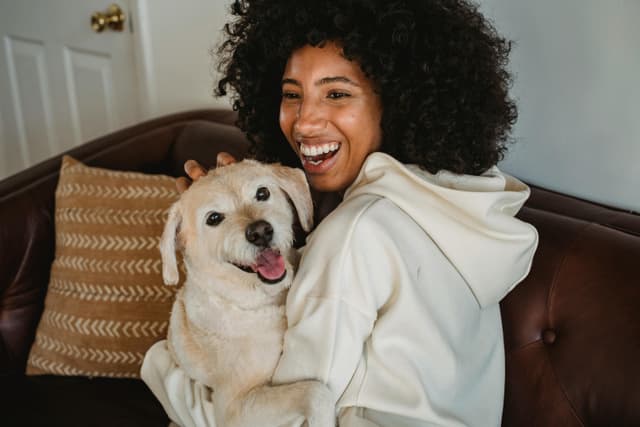Training your Yorkshire Terrier: How to Ensure Success
By Ashley MR · 5 minute read
Last updated: August 22nd, 2025

Yorkshire Terriers may be small in size, but their personalities are anything but. These spirited little dogs are confident, intelligent, and fiercely loyal — qualities that make them wonderful companions, but also sometimes a challenge to train.
Because of their bold nature, Yorkies benefit most from consistent, positive training methods tailored to their breed traits. Understanding their unique temperament and common behavioral tendencies will help you train effectively and build a strong bond with your pup.
Understanding the Yorkshire Terrier Temperament
Yorkies were originally bred as ratters in 19th-century England, meaning they were tasked with hunting vermin in textile mills and mines. This history explains some of their key traits:
High alertness — quick to bark at anything unusual.
Strong prey drive — may chase small animals, toys, or even leaves.
Confidence bordering on stubbornness — they often think they’re bigger than they are.
Devotion to their owners — can lead to clinginess and separation anxiety.
These qualities make Yorkies intelligent and eager to please, but also independent thinkers who will test boundaries if training isn’t consistent.
Why Positive Reinforcement Works Best for Yorkies
Yorkshire Terriers respond best to reward-based training. Harsh corrections or punishment can damage trust and make them fearful — or worse, cause them to shut down during training.
Positive reinforcement uses rewards (treats, praise, play) to encourage desired behaviors. For Yorkies, this works because:
They’re food-motivated and love small, tasty treats.
Their intelligence makes them quick to link actions with rewards.
They thrive on attention and enjoy making their owners happy.
The American Kennel Club (AKC) recommends short, upbeat training sessions for small breeds like Yorkies to keep them engaged and prevent frustration.
Common Behavioral Concerns in Yorkies & How to Address Them
1. Excessive Barking
Yorkies are natural watchdogs, but they can overdo it.
Training Tip: Teach the “quiet” command by rewarding your Yorkie when they stop barking on cue. Use calm praise and treats immediately when they comply.
Why It Works: Redirects their protective instinct into a controlled behavior.
2. Housebreaking Challenges
Their small bladders mean they need more frequent potty breaks.
Training Tip: Use a consistent schedule and consider indoor potty pads during training. Praise and reward immediately after they go in the correct spot.
Why It Works: Frequent opportunities and instant rewards reinforce the habit quickly.
3. Leash Pulling
Their confidence can make them try to lead the way.
Training Tip: Stop walking when they pull, and resume only when the leash is slack. Reward them for walking beside you.
Why It Works: Teaches that pulling gets them nowhere, but walking calmly moves them forward.
4. Separation Anxiety
Yorkies bond closely and may struggle when left alone.
Training Tip: Practice short departures and gradually extend the time away. Offer interactive toys or puzzles when you leave.
Why It Works: Builds independence and keeps them mentally occupied.
5. Overprotectiveness
They can become possessive of their owners.
Training Tip: Socialize early and expose them to different people, dogs, and environments in a positive way.
Why It Works: Reduces fear-based reactions and teaches that new experiences are safe.
Yorkie Training Tips & Tricks
Keep sessions short — 5–10 minutes, multiple times a day.
Use high-value treats — tiny bits of chicken or cheese work well.
Be consistent — everyone in the household should use the same commands.
Incorporate play — Yorkies love toys and games as rewards.
Socialize early — exposure to various environments builds confidence.
Essential Training Tools for Yorkies
Lightweight, adjustable harness — protects their delicate trachea compared to collars.
Clicker — helps mark desired behaviors with precision.
Soft, small treats — easy for little mouths and quick to eat.
Interactive toys — keep them occupied and mentally stimulated.
You can find breed-appropriate training gear on Amazon or your local pet store.
FAQ: Training a Yorkshire Terrier
1. Are Yorkies hard to train?
They’re intelligent and quick learners, but their independent streak can make them stubborn. Consistency and positive reinforcement are key.
2. How long does it take to potty train a Yorkie?
With consistency, many Yorkies learn within a few weeks, but accidents can happen for several months — especially if schedules aren’t followed.
3. Do Yorkies need obedience classes?
Yes, especially for first-time Yorkie owners. Classes help with socialization and reinforce good manners.
4. How do I stop my Yorkie from barking at everything?
Teach a “quiet” command, reward calm behavior, and avoid rewarding barking with attention.
5. Can Yorkies learn tricks easily?
Absolutely. Their intelligence and eagerness to please make them excellent candidates for fun tricks like “spin,” “sit pretty,” or even agility exercises.
Final Thoughts
Training a Yorkshire Terrier takes patience, consistency, and an understanding of their bold, spirited nature. By focusing on positive reinforcement, addressing common behavior challenges early, and keeping sessions short and fun, you’ll set your Yorkie up for a lifetime of good manners and confidence.
If you’re ready to bring home a Yorkie or want to learn more about this charming breed, visit Mawoo Pets’ Yorkshire Terrier listings to find healthy, well-socialized puppies from trusted breeders.
Related articles
Related puppies for sale
Any questions? Get in touch!
We are here to support you every step of the way. Our concierge service is here daily to answer your questions!
Chat or speak with our team Mon-Sat 9a-9p ET.
































